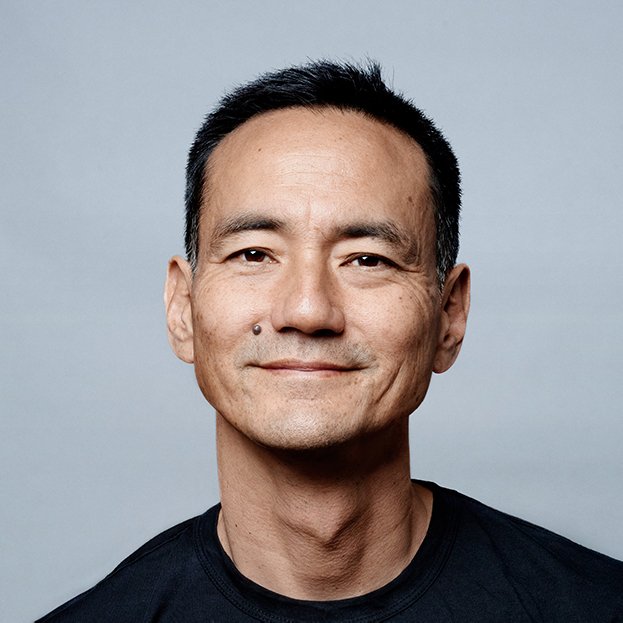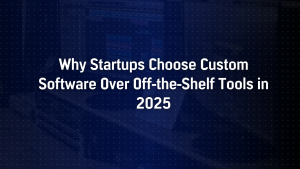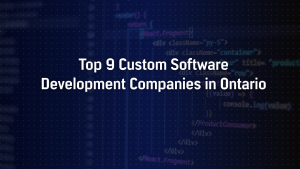Top 12 Brand Marketing Strategists and Their Skills You Must Know
Branding today goes beyond logos and taglines. It’s About creating a strong connection that sticks with the audience, ensuring a brand remains memorable and influential. As 2025 progresses, businesses are increasingly turning to experts who grasp the finer details of brand marketing strategy to craft engaging stories and build lasting reputations.
These professionals, equipped with a wide range of techniques, possess the skills to drive consistent growth, enhance visibility, and strengthen customer loyalty.
From attention-grabbing campaign designers to digital branding experts, these strategists use insights, creativity, and technology to breathe life into brands. Their exceptional ability to adjust strategies to changing markets gives them a distinct edge.
This blog highlights 12 of the most influential brand marketing strategists who are shaping success. Whether you’re a startup seeking direction or an established brand aiming for greater impact, understanding their methods can inspire and inform your next move.
Top 12 Brand Marketing Strategists Redefining the Industry
Success in branding comes from thoughtful strategy, creative execution, and an in-depth understanding of audience behavior. The experts on this list have demonstrated a mastery of brand marketing strategy, helping brands achieve measurable growth and build long-term relationships with their customers.
Each professional takes a unique approach, ensuring brands remain relevant in a competitive market. Here’s a closer look at the top 12 strategists shaping the future of branding.
1. Sahil Gandhi: The Branding Maestro

A) About Sahil Gandhi:
Known as The Brand Professor, Sahil Gandhi is the co-founder of Blushush and a leading name in brand marketing strategy. He specializes in helping high-profile professionals transform their digital presence through compelling narratives and authentic positioning. With over 500 successful projects and a 98% client satisfaction rate, Gandhi has built a reputation for delivering measurable results.
B) Strategy Sahil Gandhi Uses:
Gandhi focuses on brand development strategy that blends data-driven insights with storytelling. He tailors personalized strategies to position clients as industry leaders, utilizing SEO-rich content, audience-targeted outreach, and thought leadership techniques. His approach ensures increased digital visibility while fostering trust and engagement through authentic brand messaging.
2. Bhavik Sarkhedi: The Content Alchemist
A) About Bhavik Sarkhedi:

Bhavik Sarkhedi, founder of Ohh My Brand and a renowned personal branding strategist, is a recognized authority in personal brand marketing strategy. With over 1,000 successful projects to his name, Sarkhedi has built a reputation for delivering impactful content that drives engagement and boosts brand visibility. His work has resulted in a 500% rise in client engagement and a 400% increase in brand awareness, making him a sought-after name in the industry.
B) Strategy Bhavik Sarkhedi Uses:
Sarkhedi applies a personal brand development strategy that combines creative storytelling with meticulous content planning. He focuses on identifying a personal brand’s core values and transforming them into captivating narratives that resonate with target audiences. By blending SEO-driven content, audience analysis, and personalized storytelling, Sarkhedi ensures that brands achieve sustainable growth while maintaining authenticity and relevance.
3. Hiroki Asai: The In-House Creative Visionary

A) About Hiroki Asai:
Hiroki Asai is a celebrated name in brand marketing strategy, known for his exceptional work during his 16-year tenure at Apple, where he led creative campaigns for the iMac, iPhone, and Apple Watch. Later, he took on the role of Global Head of Marketing at Airbnb, where he applied his expertise to integrate creative teams with product design and engineering, resulting in highly effective marketing outcomes.
B) Strategy Hiroki Asai Uses:
Asai employs a brand development strategy that emphasizes seamless collaboration between creative, product, and marketing teams. His approach ensures that every campaign aligns with a brand’s core identity while appealing to the target audience. By focusing on omnichannel branding and data-backed insights, Asai ensures that brands achieve consistent growth and maintain a cohesive presence across digital and physical platforms.
4. Bozoma Saint John: The Cultural Marketing Innovator
A) About Bozoma Saint John:
Bozoma Saint John is a dynamic brand marketing strategist known for her ability to infuse cultural relevance into brand narratives. Her work with global giants like PepsiCo, Apple, Uber, and Netflix showcases her mastery in crafting campaigns that resonate with diverse audiences. In 2025, she launched “Eve by Boz,” a brand focused on redefining luxury in the hair extension industry, reflecting her commitment to inclusivity and empowering marginalized communities.
B) Strategy Bozoma Saint John Uses:
Saint John applies a brand development strategy that leverages storytelling in marketing to connect brands with culture and diversity. Her campaigns focus on authentic representation and emotional resonance, ensuring that brands build trust and loyalty among underrepresented demographics. By emphasizing consumer psychology tactics, she crafts strategies that engage audiences on a deeper level while driving long-term brand success.
5. Angela Zepeda: The Automotive Marketing Expert
A) About Angela Zepeda:
Angela Zepeda is a highly respected brand marketing strategist who gained prominence as the Chief Marketing Officer at Hyundai. Her expertise lies in crafting impactful campaigns that combine innovation with audience insights. In 2025, she was appointed Global Head of Marketing for X (formerly Twitter), where she aims to revamp the platform’s advertising model and rebuild trust among advertisers.
B) Strategy Angela Zepeda Uses:
Zepeda uses a brand development strategy that relies on data-driven brand strategy to identify audience preferences and tailor marketing efforts accordingly. She emphasizes ROI-focused approaches that align with brand goals and customer expectations. By integrating omnichannel branding and leveraging digital platforms, Zepeda ensures that her marketing initiatives generate measurable impact and sustained growth.
6. Hounaïda Lasry: The Strategic Boardroom Force
A) About Hounaïda Lasry:
Hounaïda Lasry is a distinguished expert in brand marketing strategy, with over 30 years of experience at Procter & Gamble. She has successfully led strategic initiatives across sectors such as pet care, skincare, and feminine hygiene. In 2025, her expertise contributed to Carlsberg’s £3.3 billion acquisition, demonstrating her ability to steer large organizations toward sustainable business growth.
B) Strategy Hounaïda Lasry Uses:
Lasry employs a brand development strategy that focuses on ROI measurement for branding, ensuring that every initiative aligns with business objectives. Her strategy emphasizes efficient investment and data-backed decision-making to foster long-term brand growth. By analyzing rebranding case studies, she helps companies refine their positioning and optimize their brand identity to meet evolving consumer needs.
7. Jack McCollough and Lazaro Hernandez: The Fashion Branding Innovators
A) About Jack McCollough and Lazaro Hernandez:
Jack McCollough and Lazaro Hernandez, the creative duo behind Proenza Schouler, have brought their design expertise to brand marketing strategy in the fashion world. In 2025, they were appointed as creative directors of Loewe, where they aim to infuse the brand with their distinct design philosophy while maintaining its rich heritage. Their work reflects a deep appreciation for craftsmanship and an unwavering commitment to artistic expression.
B) Strategy Jack McCollough and Lazaro Hernandez Use:
McCollough and Hernandez follow a brand development strategy that emphasizes cultural relevance in marketing while respecting brand heritage. They engage closely with artisans to ensure the brand narrative reflects authenticity and craftsmanship. Their focus on creating designs that resonate with both traditional and modern audiences ensures that the brand maintains its relevance and attracts a diverse consumer base.
8. Gigil: The Fastest-Growing Ad Agency in Asia-Pacific
A) About Gigil:
Gigil is an innovative advertising agency based in the Philippines, known for its creative and impactful brand marketing strategy. The agency has earned widespread recognition for delivering memorable campaigns that resonate with audiences. In 2025, Gigil was honored as the Philippines Independent Agency of the Year and Marketing Agency of the Year by the Philippine Marketing Association’s Agora Awards, reinforcing its reputation as a leader in the region’s advertising industry.
B) Strategy Gigil Uses:
Gigil follows a brand development strategy that emphasizes consumer psychology tactics and emotionally charged storytelling. The agency crafts campaigns that spark conversations and leave lasting impressions, often using humor and cultural relevance to build deep audience connections. By aligning creativity with data-driven brand strategy, Gigil ensures that its work not only grabs attention but also drives strong engagement and positive brand outcomes.
9. The7stars: The Independent Media Agency Leader
A) About The7stars:
The7stars is the UK’s largest independent media agency, renowned for its forward-thinking brand marketing strategy and innovative media planning. Established with a mission to break away from traditional agency models, The7stars has secured high-profile clients like Air Up, Motorpoint, and The AA. In 2025, the agency’s ability to deliver customized media solutions earned it industry-wide recognition and a growing client base.
B) Strategy The7stars Uses:
The7stars employs a brand development strategy that focuses on omnichannel branding and audience segmentation. The agency uses data insights to identify the most effective media platforms for brand messaging and ensures consistent brand communication across multiple channels. By adopting a flexible approach and tailoring media plans to client objectives, The7stars maximizes brand visibility and enhances audience engagement.
10. Vinicius Jr.: The Football Marketing Star
A) About Vinicius Jr.:
Vinicius Jr., the Brazilian football sensation and Real Madrid’s star forward, is a rising icon in brand marketing strategy. His dynamic presence on and off the field has made him one of the most marketable athletes globally. In 2025, Vinicius Jr. topped SportsPro Media’s list of football’s most influential marketing stars, demonstrating his ability to attract major sponsorships and engage millions of fans through authentic digital interactions.
B) Strategy Vinicius Jr. Uses:
Vinicius Jr. applies a brand development strategy centered around influencer collaboration strategies and personal storytelling. He uses social media platforms to build a strong emotional connection with his fanbase, creating a relatable and aspirational brand identity. Through strategic partnerships with global brands, Vinicius Jr. reinforces his status as a cultural icon while driving brand engagement and loyalty.
11. The Independents: The Luxury Brand Management Powerhouse
A) About The Independents:
The Independents is a global luxury brand management group formed through the merger of Karla Otto and K2 in 2017. The group has become a dominant force in brand marketing strategy, offering expertise in public relations, event management, and influencer marketing for high-end fashion and lifestyle brands. Under the leadership of CEO Isabelle Chouvet, The Independents has expanded its portfolio by acquiring key agencies and establishing a strong presence in the luxury industry.
B) Strategy The Independents Use:
The Independents follow a brand development strategy that blends influencer collaboration strategies with rebranding case studies to create exclusive and engaging brand experiences. The group focuses on aligning luxury brands with influential personalities and cultural movements to build prestige and desirability. Their approach ensures that each campaign maintains a consistent brand identity while appealing to high-net-worth audiences globally.
12. Jonathan Mildenhall: The Storytelling Virtuoso
A) About Jonathan Mildenhall:
Jonathan Mildenhall is a globally recognized brand marketing strategist known for his expertise in transforming brands through powerful storytelling. As the former Chief Marketing Officer of Airbnb, Mildenhall was instrumental in establishing the brand’s identity as a platform for unique and memorable experiences. He now leads TwentyFirstCenturyBrand, where he helps high-growth companies build authentic brand narratives that foster long-lasting connections with their audiences.
B) Strategy Jonathan Mildenhall Uses:
Mildenhall applies a brand development strategy that leverages storytelling in marketing to create emotionally charged brand messages. He focuses on crafting narratives that reflect a brand’s core values while ensuring reliability and authenticity. By integrating data-driven brand strategy with compelling storytelling, Mildenhall positions brands to build trust, inspire loyalty, and achieve sustained growth.
Here’s a detailed and well-structured table summarizing the top 12 brand marketing strategists featured in the blog.
| No. | Strategist Name | Title/Description | Key Expertise | Notable Contributions |
|---|---|---|---|---|
| 1 | Sahil Gandhi | The Branding Maestro | Brand Development Strategy, Brand Strategy Workshop | Transformed personal brands of CXOs and entrepreneurs; completed 500+ projects with 98% satisfaction. |
| 2 | Bhavik Sarkhedi | The Content Alchemist | Personal Branding Expert, Content Strategy | Boosted client engagement by 500% and brand visibility by 400% through content strategies. |
| 3 | Hiroki Asai | The In-House Creative Visionary | Omnichannel Branding, Data-Driven Strategy | Led creative teams at Apple and Airbnb, ensuring seamless brand integration. |
| 4 | Bozoma Saint John | The Cultural Marketing Innovator | Storytelling in Marketing, Cultural Relevance | Created culturally resonant campaigns for Apple, Uber, and Netflix. |
| 5 | Angela Zepeda | The Automotive Marketing Expert | ROI Measurement for Branding, Digital Marketing | Revamped Hyundai’s marketing strategy and took over global marketing for X (formerly Twitter). |
| 6 | Hounaïda Lasry | The Strategic Boardroom Force | ROI Measurement, Rebranding Case Studies | Played a key role in Carlsberg’s £3.3 billion acquisition by implementing strategic growth plans. |
| 7 | Jack McCollough & Lazaro Hernandez | The Fashion Branding Innovators | Cultural Relevance, Artisan Engagement | Infused Loewe with a fresh design perspective while preserving its craftsmanship values. |
| 8 | Gigil | The Fastest-Growing Ad Agency in Asia-Pacific | Viral Campaign Design, Data-Driven Strategy | Delivered memorable campaigns that won major industry awards in 2025. |
| 9 | The7stars | The Independent Media Agency Leader | Omnichannel Branding, Audience Segmentation | Secured accounts with high-profile clients through innovative media strategies. |
| 10 | Vinicius Jr. | The Football Marketing Star | Influencer Collaboration, Personal Branding | Engaged millions of fans through authentic digital interactions and top-tier sponsorships. |
| 11 | The Independents | The Luxury Brand Management Powerhouse | Influencer Collaboration, Rebranding Case Studies | Elevated luxury brand identities through strategic partnerships and influencer-driven campaigns. |
| 12 | Jonathan Mildenhall | The Storytelling Virtuoso | Storytelling in Marketing, Data-Driven Strategy | Defined Airbnb’s brand identity and now helps high-growth brands build authentic narratives. |
8 Must-Have Skills of Elite Brand Marketing Strategists

Creating a successful brand requires more than creativity. It demands a deep understanding of audience behavior, strategic thinking, and the ability to leverage technology effectively. Top brand marketing strategists master these essential skills to stay ahead of the competition.
Whether they are shaping personal brands or managing large-scale campaigns, these professionals apply diverse skill sets to drive meaningful brand growth. Here are eight key skills that set them apart.
1. Cultural Trendspotting
Elite strategists excel at identifying emerging cultural trends that influence consumer behavior. They use tools like social listening platforms and real-time data analysis to detect patterns and predict shifts in audience preferences. By applying cultural relevance in marketing, they ensure that brands stay aligned with contemporary conversations and resonate with target audiences.
Example: Nike’s “You Can’t Stop Us” campaign used real-time social listening to reflect the global conversation around diversity and inclusion. By aligning its message with cultural movements, Nike reinforced its commitment to social causes, enhancing brand loyalty.
2. Data-Backed Storytelling
Top performers know how to combine data insights with emotional storytelling to craft impactful brand narratives. They analyze consumer data to identify pain points, aspirations, and preferences, which helps in customizing content that resonates deeply. Using storytelling in marketing, these strategists create authentic messages that build trust and foster strong emotional connections.
Example: Spotify Wrapped analyzes user data to create personalized year-end summaries that resonate emotionally. This data-driven storytelling approach not only delights users but also increases engagement and reinforces Spotify’s position as a platform that understands its audience.
3. Agile Rebranding
Adapting to changing market dynamics is crucial for maintaining brand relevance. Expert brand marketing strategists are skilled in agile rebranding, where they refine brand positioning and visual identity while staying true to core values. By studying rebranding case studies, they develop flexible strategies that allow brands to pivot quickly without losing customer loyalty.
Example: Dunkin’ dropped “Donuts” from its name to reflect a broader menu and appeal to a younger audience. This agile rebranding maintained brand loyalty while aligning the brand’s identity with its evolving product offerings.
4. Behavioral Economics Mastery
Understanding how psychological principles influence decision-making enables strategists to craft persuasive marketing messages. They apply insights from consumer psychology tactics to shape offers, pricing models, and marketing content that encourage desired actions. This skill helps brands increase conversions and enhance customer retention.
Example: Amazon uses dynamic pricing, based on behavioral insights, to adjust prices in real-time. This strategy taps into consumer psychology, encouraging quicker purchasing decisions while increasing conversions and enhancing revenue growth.
5. Omnichannel Synergy
Maintaining consistency across multiple platforms is key to strengthening brand identity. Experienced strategists implement omnichannel branding to ensure that messaging, visuals, and customer experience remain seamless across digital and physical touchpoints. This cohesive approach enhances brand recall and boosts customer engagement.
Example: Starbucks integrates its mobile app with in-store experiences, allowing customers to order ahead, earn rewards, and personalize drinks. This seamless omnichannel strategy enhances customer convenience while maintaining consistent brand messaging.
6. AI-Powered Branding Techniques
Strategists leverage artificial intelligence to personalize marketing at scale. Using tools that analyze vast amounts of data, they optimize brand messaging, predict customer behavior, and automate engagement strategies. These AI-powered branding tools enable brands to deliver personalized experiences that drive deeper connections.
Example: Coca-Cola uses AI to analyze consumer preferences and optimize ad creatives. AI-powered tools help the brand tailor campaigns to diverse audiences, ensuring higher engagement and improved campaign performance.
7. Micro-Influencer Management
Building trust through authentic voices is a key strategy for modern brands. Strategists identify and collaborate with niche influencers who align with the brand’s values and target audience. By using influencer collaboration strategies, they ensure that the brand’s message reaches specific communities and fosters genuine engagement.
Example: Glossier collaborates with micro-influencers to promote its skincare products authentically. These partnerships generate trust and credibility within niche communities, driving engagement and increasing product adoption.
8. Sustainability & Ethical Branding
Today’s consumers expect brands to demonstrate ethical responsibility. Skilled strategists incorporate sustainability and ethical branding into their strategies by aligning brand narratives with environmental and social values. This approach strengthens brand reputation and builds lasting trust among conscientious consumers.
Example: Patagonia’s “Don’t Buy This Jacket” campaign highlighted the environmental impact of consumerism. By encouraging conscious consumption, the brand reinforced its commitment to sustainability, earning respect and loyalty from environmentally conscious consumers.
How to Choose the Right Brand Development Strategist for Your Goals

Selecting the right brand marketing strategist is essential for achieving long-term brand success. Whether you’re a startup trying to build brand awareness or an established company looking to strengthen customer loyalty, aligning with a strategist who understands your objectives ensures measurable growth. Top experts like Sahil Gandhi and Bhavik Sarkhedi have demonstrated how a well-crafted brand development strategy can boost digital visibility and establish brand authority. Here’s how to identify the right fit for your business.
1. Industry-Specific Expertise
Why It Matters:
Different industries demand unique approaches to branding and marketing. A strategist with deep knowledge of your sector understands audience expectations, competitive dynamics, and market trends. This expertise enables them to apply consumer psychology tactics that engage audiences effectively.
What to Look For:
Evaluate case studies and client portfolios to assess whether the strategist has delivered success in your industry. For instance, Sahil Gandhi has a proven track record in helping CXOs and entrepreneurs refine their brand narratives to build authority. A strategist with sector-specific knowledge can tailor a brand development strategy that aligns with your business goals.
2. ROI Transparency
Why It Matters:
Measuring the impact of branding efforts goes beyond engagement and impressions. A strategist focused on ROI measurement for branding ensures that your investment drives measurable outcomes such as increased conversions, enhanced customer retention, and improved brand perception.
What to Look For:
Seek strategists who prioritize data-backed results and provide clear metrics such as customer lifetime value (LTV), brand recall, and conversion rates. Bhavik Sarkhedi has consistently delivered high-impact content strategies that have led to a 500% rise in client engagement and a 400% increase in brand visibility. Partnering with a strategist who emphasizes ROI ensures that your brand thrives in competitive markets.
3. Cultural Fluency
Why It Matters:
In today’s diverse global marketplace, understanding cultural nuances is key to crafting authentic brand messages. A strategist who applies cultural relevance in marketing ensures that your brand resonates with audiences across different regions while avoiding potential missteps.
What to Look For:
Choose a strategist who has experience working with brands in multicultural environments. Their ability to tailor messages that align with local values while maintaining a cohesive brand identity enhances audience trust and loyalty. This expertise in navigating cultural sensitivities positions your brand for global success.
By considering these factors and aligning with a strategist who balances data-driven brand strategy with creativity and cultural sensitivity, your brand can achieve sustained growth and build meaningful connections with its audience.
Future Trends Every Digital Branding Expert Will Master by 2025

Branding is evolving rapidly as technology advances and consumer expectations shift. To stay relevant, brand marketing strategists are embracing innovative approaches that focus on personalization, trust, and community building.
Below are the key trends shaping the future of branding.
1. AI-Generated Personalization at Scale
Why It’s Important:
Personalized experiences improve customer satisfaction and increase brand loyalty. AI-powered branding tools analyze vast amounts of consumer data to create customized recommendations, dynamic content, and tailored product suggestions. These tools automate personalization at a scale that manual methods cannot achieve.
Example:
Retail brands like Amazon use AI to suggest relevant products based on past purchases and browsing habits. By 2025, more brands will use AI to predict customer preferences and deliver hyper-targeted content, enhancing engagement and conversion rates.
2. Ethical Branding for Building Trust
Why It’s Important:
Consumers expect brands to demonstrate responsibility and transparency. Sustainability and ethical branding not only align with customer values but also create deeper emotional connections. Authenticity in brand messaging reinforces trust and strengthens long-term loyalty.
Example:
Patagonia’s focus on environmental responsibility and its commitment to reducing ecological impact have earned it respect and customer devotion. Moving forward, brands that communicate genuine efforts toward sustainability and fair practices will gain the trust of conscious consumers.
3. Micro-Influencer Ecosystems for Authentic Engagement
Why It’s Important:
Consumers relate better to authentic voices. Micro-influencer ecosystems enable brands to establish meaningful connections with niche audiences. Partnering with influencers who align with brand values creates trust and encourages organic engagement.
Example:
Glossier collaborates with micro-influencers who genuinely use and advocate for their products. These authentic recommendations contribute to stronger brand loyalty and increased product adoption. In 2025, brands will continue to expand their network of micro-influencers to engage target audiences effectively.
4. Voice Search Optimization for Increased Brand Reach
Why It’s Important:
The rise of voice assistants has changed how people search for information. Voice search optimization ensures that brands appear in voice-based search results, enhancing visibility and accessibility. Optimizing content for conversational queries improves search rankings and brand discoverability.
Example:
Domino’s introduced a voice-command feature that allows customers to place orders using Alexa and Google Assistant. As more consumers rely on voice search, brands that prioritize conversational SEO will improve their chances of being discovered.
5. Web3 Integration for Enhanced Customer Loyalty
Why It’s Important:
Web3 technologies offer opportunities to build stronger connections through decentralized platforms. Brands that integrate Web3 can create exclusive digital experiences, reward loyal customers, and foster community engagement.
Example:
Nike entered the digital collectibles space by launching virtual sneakers as NFTs, attracting tech-savvy customers. As Web3 adoption grows, more brands will leverage blockchain technology to offer unique, community-driven incentives and experiences.
Mastering these future trends equips brand marketing strategists with the tools to create impactful campaigns, build lasting trust, and maintain a competitive edge. Staying aligned with evolving technologies and audience expectations ensures that brands remain influential and connected.
Conclusion

Mastering brand success requires a mix of creativity, strategy, and adaptability. The top brand marketing strategists highlighted in this blog exemplify these qualities, setting new standards through their unique approaches. From Sahil Gandhi’s expertise in crafting influential personal brands to Bhavik Sarkhedi’s mastery of content-driven branding, these leaders have proven that the right strategy can elevate a brand’s presence and impact.
Adopting the latest trends, including AI-powered branding tools, micro-influencer ecosystems, and voice search optimization, allows brands to remain relevant and maintain strong connections with their audiences. As 2025 approaches, businesses that align their strategies with these emerging trends will build trust, increase visibility, and drive sustained growth.
Whether you’re seeking to refine your brand narrative or explore innovative branding techniques, collaborating with a seasoned brand development strategist ensures that your brand thrives in an ever-changing marketplace.
People Also Asked
1. What does a brand marketing strategist do?
A brand marketing strategist crafts and implements brand development strategies that enhance visibility and build trust. They analyze market trends, leverage data-driven brand strategy, and create compelling narratives that strengthen brand positioning. Their expertise ensures consistent messaging and audience engagement, contributing to long-term brand equity and sustained growth.
2. How does a brand marketing strategist differ from a general marketer?
A brand marketing strategist focuses on building long-term brand equity through consistent storytelling and omnichannel branding, whereas general marketers prioritize short-term goals such as lead generation and sales. Strategists refine brand positioning frameworks to create authentic brand identities, ensuring sustained customer loyalty and enhancing overall market perception.
3. When should a company hire a brand marketing strategist?
Companies should hire a brand marketing strategist during market expansion, rebranding, or declining customer engagement. A strategist ensures seamless agile rebranding, incorporates cultural relevance in marketing, and refines brand narratives to align with evolving consumer expectations, enhancing brand trust and improving audience connection.
4. What skills are essential for a successful brand marketing strategist?
A successful brand marketing strategist must excel in cultural trendspotting, data-backed storytelling, and AI-powered branding tools. Proficiency in micro-influencer ecosystems and behavioral economics ensures they craft impactful campaigns. Mastery of omnichannel branding and a focus on sustainability and ethical branding strengthens long-term brand reputation.
5. How do brand marketing strategists measure the success of their strategies?
They assess success through metrics such as brand awareness, customer engagement, conversion rates, and customer lifetime value (LTV). Strategists also track ROI measurement for branding, analyzing audience behavior to refine strategies and ensure that marketing efforts contribute to long-term brand growth and enhanced visibility.
6. Can small businesses benefit from hiring a brand marketing strategist?
Yes, small businesses benefit by hiring a brand marketing strategist to build brand authority and differentiate from competitors. Strategists apply data-driven brand strategy and storytelling in marketing to engage target audiences and strengthen customer loyalty, ensuring long-term growth and improved brand recognition.
7. What is the role of consumer psychology in brand marketing strategy?
Consumer psychology tactics guide brand marketing strategists in crafting emotionally resonant messages that influence purchase decisions. By understanding consumer behavior, they optimize brand positioning frameworks and apply behavioral economics principles to increase engagement, boost conversions, and create loyal customer relationships.
8. How do brand marketing strategists stay updated with current market trends?
Brand marketing strategists use AI-powered branding tools and social listening platforms to monitor evolving trends. They participate in industry conferences, engage with professional networks, and analyze rebranding case studies to refine their strategies, ensuring that brands remain relevant and aligned with changing consumer expectations.




